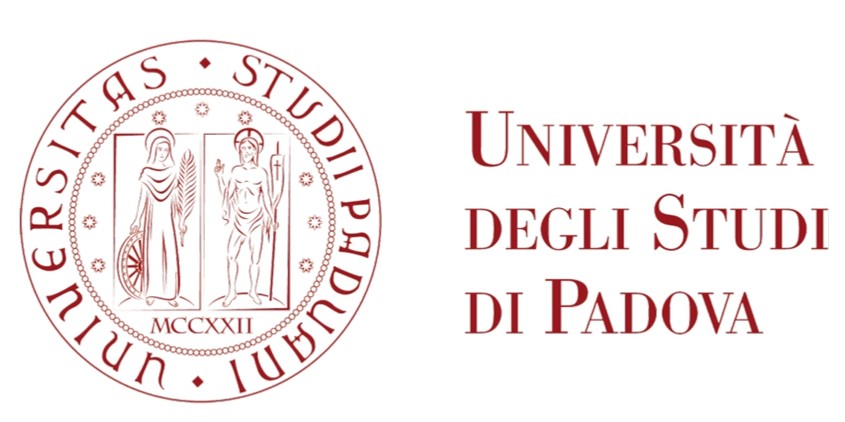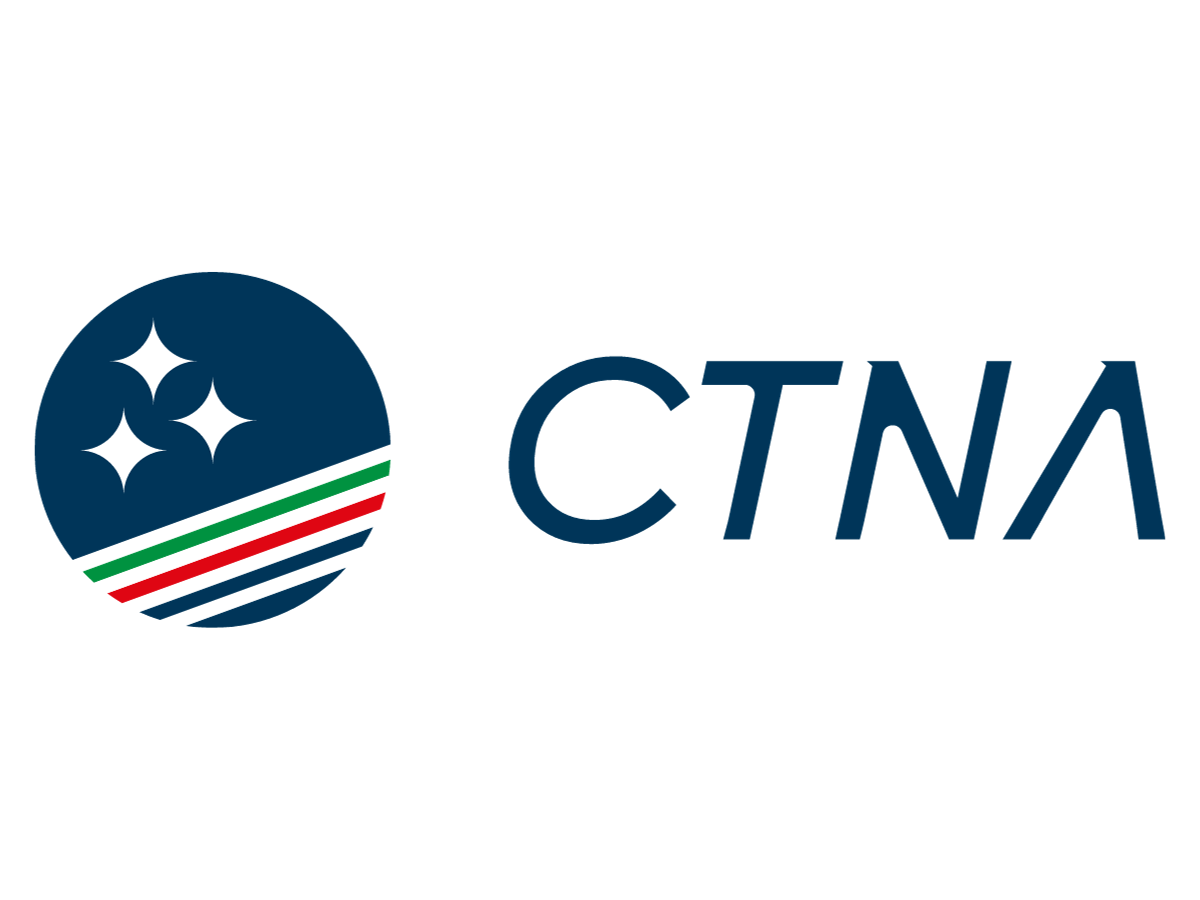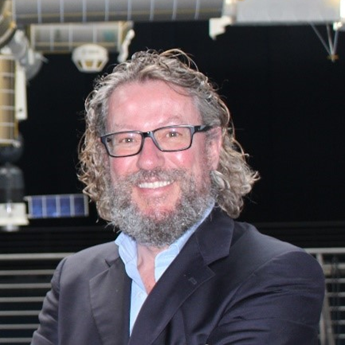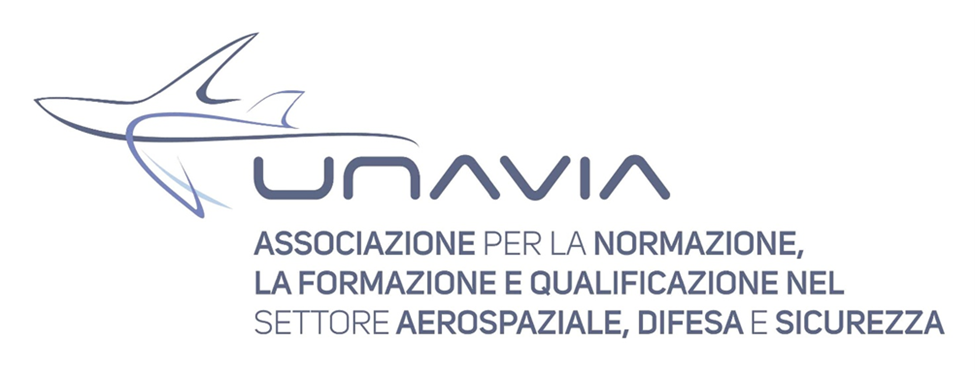- December 2 - 4, 2025

Head of Quantum Computing Solutions & Head of Sales Engineering Hypercomputing


Head of Quantum Computing Solutions & Head of Sales Engineering Hypercomputing

Daniele Dragoni is head of Leonardo’s Quantum Computing Laboratory, where he coordinates research and development on quantum algorithms and technologies with applications in the AS&D sectors. He is also head of engineering at Leonardo Hypercomputing, a business unit dedicated to end-to-end solutions in the HPC and Cloud fields with a focus on data security and sovereignty. Previously, he conducted research as a computational material scientist, a field in which he earned a Ph.D. from the École Polytechnique Fédérale de Lausanne.

Senior Space Expert


Senior Space Expert

Graduated in Nuclear Engineering at the Politecnico di Torino in 1974. He worked for Thales Alenia Space since 1975 in the System Engineering, Verification and Testing area. He has had direct responsibilities in manned and unmanned spacecraft including scientific satellites and International Space Station modules.
Since 2013 he was Chief Technical Officer of Thales Alenia Space Italy and deputy CTO VP for R&D, Technology and Product Policy across the entire TAS until his retirement at the end of 2017.
Since 2001 Mr. Messidoro has been serving as an external Professor at the Politecnico di Torino giving lectures in Systems Engineering and Program Management in the International Master course SEEDS (SpacE Exploration and Development Systems) as well as in other Space Systems Engineering courses.
He is still active in the space business and among several collaborations with Universities and Institutions is also President of Technical Scientific Committee of the ITS Aerospace and Mechatronics of Piemonte, Venture Partner of the Primo Space Fund and member of the Scientific Committee of the Center for Near Space (CNS). He is acting as Space Expert in the Piemonte Agency for the internationalization of the SME’s.
Due to his contribution to Space Exploration research and missions the International Astronomical Union and NASA assigned the name “Messidoro” to the Asteroid 24856.

Director of International Markets


Director of International Markets

Manlio Di Stefano serves as Director of International Markets at Axiom Space, playing a crucial role in the company’s efforts to expand its international network and business. Prior to joining Axiom Space, Manlio held distinguished roles, including Member of the Italian Parliament, Deputy Minister of Foreign Affairs and Minister Delegate for Trade of the Republic of Italy, positions he held from 2013 to 2022.
During his tenure at the Foreign Ministry, Manlio’s responsibilities encompassed the internationalization of Italian companies, international trade (including participation in G7 and G20), energy, research, innovation, digitalisation and space cooperation.
In 2013, he assumed the role of group leader for the Five Star Movement, the leading Italian party, in the Foreign Affairs Commission.
Additionally, from 2013 to 2018, Manlio actively contributed to the Parliamentary Assembly of the Council of Europe. In this capacity, he served on the Committee on Migration, Refugees, and Displaced Persons, where he chaired the impactful Sub-Committee on Refugee and Migrant Children and Young People.
A Computer Engineering graduate from the Università degli Studi di Palermo, he began his professional journey with Accenture, serving as a Business Intelligence Analyst and developer, as well as an IT consultant across various sectors, including oil & gas, banking, finance, and consumer goods.
In addition to his professional endeavors, Manlio volunteered for the Italian Amka Onlus operating in the Democratic Republic of Congo and in Guatemala, focusing on projects related to sustainable development.
Beyond his professional commitments, Manlio is a dedicated husband and father to a splendid daughter.

Executive Vice President, Space Business Development


Executive Vice President, Space Business Development

Prior to joining Voyager Technologies, Ms. Haas was the Vice President of Business Development at Paragon Space Development Corporation. Her other aerospace experience includes engineering and project management roles on the Space Shuttle and International Space Station. She has more than 25 years of global business experience with Fortune 100 and startup companies including stints as Vice-President & General Manager at the Sony DVD Center which launched the DVD format worldwide and Vice President Business Development for the Sony Pictures Digital Studios Division.
Her professional achievements have been recognized with the NASA Silver Snoopy Award, Rocketdyne Engineer of the Year Honoree Award, and the Rocketdyne President Leadership Award. She is the recipient of the Sony CEO Award in Tokyo, Japan and Sony’s 50th Anniversary Innovation Award for the success of the DVD launch. Ms. Haas received her B.S. degree in Industrial Engineering from Texas A&M University and her MBA from Pepperdine University in Malibu, California.

Associate Professor


Associate Professor

Carlo Bettanini is associate Professor of “Flight “Mechanics” at University of Padova.
He is member of the Board of Professors for the Doctoral School in Science, Technology and Measurements for Space (STMS) of the University of Padua and of the National Doctoral School in Earth Observation based at the University of Rome La Sapienza.
He serves as Member of the Board of the Department of Industrial Engineering and as member of the Board of Trustees of the Council of European Aerospace Societies; he was also recently appointed as representative of University of Padua in the Universities Space Research Association (USRA).
He has collaborated on major space missions from European and international space agencies and held significant roles in international projects, including Project Manager of the DREAMS instrument for ExoMars 2016.
He is currently head of the “Measurements for Space” Research Laboratory of the Center for Space Studies and Activities and Scientific and Technical Coordinator of the Aerospace cluster of Veneto region.

President


President

Born in Pordenone (Italy) in 1971. Married with two children.
He graduated in Sociology from the University of Urbino in 1994. Immediately after graduation, he moved to London where, following an initial experience at the strategic consulting firm OC&C Strategy Consultants, he joined the Corporate Finance team at Dresdner Kleinworth Benson for three years.
In 1998, he joined the Zoppas Industries Group. After completing a training program covering the entire value chain, from marketing to management control and production, he contributed to the Group’s globalization process through the opening of plants in Romania, Mexico, and China, as well as through the acquisition of companies in the USA, and in Europe.
In 2001, he was appointed General Manager of I.R.C.A. S.p.A. – Zoppas Industries Heating Element Technologies, a company that manufactures heating systems and electronic temperature control devices for domestic and industrial applications.
In 2023, he was appointed Managing Director of Zoppas Industries Heating Element Technologies.
He serves on the Board of Directors of I.R.C.A. S.p.A. – Zoppas Industries Heating Element Technologies. He is a member of the Board of Directors of PFH (Palladio Financial Holding).
He is a member of Board of Directors of Fhiaba S.r.l. (a company that produces high-end domestic refrigerators). He is a member of the Aerospace Technical Group of Confindustria.
He is Chairman of the “Large Industria” Committee and a member of the Board of Confindustria Veneto Est, with a specific mandate for the space economy. He is also President of the Regional Innovative Network for Aerospace Innovation and Research (RIR AIR), which brings together aerospace companies in the Veneto region.

General Director


General Director

Stefano Nigro has been the General Manager of Piemonte Agency for Investments and Export since 2022. Previously, he served as Director of Foreign Investment Attraction Coordination at the Italian Trade Agency. Today, he leads a team of over 80 professionals specializing in SMEs internationalization, foreign investment promotion, and investors support.
With extensive experience in internationalization and territorial marketing, he gained ten years of experience at Promos, the agency of the Milan Chamber of Commerce, where he collaborated with the Lombardy Region and the Lombard Chamber System to launch the “Invest in Milan” and “Invest in Lombardy” initiatives. He began his career at BIP, a management consulting firm.
Author of numerous publications on foreign investment as a driver of innovation and growth in Italy, he holds an M.Sc. in Economics from Warwick University.

CEO


CEO

Marta Testi is co-founder and since 2020 Chief Executive Officer of ELITE | Euronext Group. She joined Borsa Italiana in 2003 with a thesis on the Borsa Italiana market dedicated to the growth of small and medium-sized companies.
In 2007, following the merger with the London Stock Exchange, she held the position of Project Manager within the project to import AIM into Italy and in 2009, after the launch of AIM Italia, she assumed the role of Head of Partnership Continental Europe – Primary Markets of the London Stock Exchange Group with the aim of structuring and growing the business in synergy with corporate advisors to increase the attractiveness of the capital markets in Italy and Europe.
In 2012 she was part of the group that designed, launched and implemented ELITE and in 2016, when the ELITE project became a company, she assumed responsibility for ELITE for Italy and Continental Europe, adding the role of Global Head of Product Management in 2018 before becoming the CEO in 2020. From April 2021, ELITE, part of the Borsa Italiana Group, becomes part of the Euronext Group. As of September 2025, Marta was appointed as Non Executive Director of the Board of Directors of Euronext Securities Milan.
Before joining Borsa Italiana, she gained various experiences in finance and insurance following her degree in Political Science at Università Cattolica del Sacro Cuore in Milan.

Head of the Advanced Air Mobility and Innovative Air Mobility Office


Head of the Advanced Air Mobility and Innovative Air Mobility Office

Master degree in Aeronautical Engineering, working for ENAC since 2002. Since 2012 actively engaged in regulation-development activities, with a particular focus on Air Operations, Continuous Airworthiness and RPAS/UAS.
As Italy’s representative, contributes to the ICAO Remotely Piloted Aircraft Systems Panel, the ICAO Advanced Air Mobility Study Group and the EASA UAS Technical Body, developing UAS regulations at both national and international levels, in cooperation with ICAO, EASA and other Civil Aviation Authorities.
Currently is the Head of ENAC’s Advanced Air Mobility and Innovative Air Mobility Office, leading efforts in the advancement of air mobility and regulatory framework for AAM/IAM.

Business Reporter

Managing Director Aeronautics Division


Managing Director Aeronautics Division

Stefano Bortoli is Managing Director of Leonardo’s Aeronautics Division, established in May 2025, bringing together the Aerostructures and Aircraft Divisions.
Previously, he was Managing Director of the Aerostructures Division since January 2023.
Prior to this position, Stefano Bortoli was Chief Executive Officer of GIE ATR, in Toulouse.
Previously was President of the ATR Board and Senior Vice-President (SVP) Strategy and Sales of Leonardo’s Aircraft Division from March 2017.
He served as SVP Sales and Marketing of Leonardo Helicopter Division from 2015 to 2017, and as SVP Staff Functions & Governance of Augusta Westland, from 2013 to 2015.
Between 2011 and 2013, he was Chief Executive Officer of Snai Group, an Italian gaming Company. From 2006 to 2011, he served as Group Chief Finance Officer (CFO) of Lottomatica/GTECH in the Providence, Rhode Island, US, also in the gaming industry.
From 1989 to 2006, Stefano Bortoli waked for Aeritalia, then Alenia Aeronautica Co- General Director and lately as CFO at Alenia Aeronautica.
Stefano Bortoli started his professional career in 1985 in Italy as Internal Auditor at the pharmaceutical firm Johnson and Johnson and later spent three years at Ispettorato IRI, an Italian state-owned holding company.
He holds a degree cum laude in Economics from the University of Rome. He served as Officer at Guardia di Finanza, in 1984 and 1985. He is married and has one son.

President


President

Ambassador Stefano Pontecorvo was appointed Chairman of Leonardo S.p.a. on 9 May 2023.
Ambassador Stefano Pontecorvo has been an Italian diplomat and a European and international official for about forty years. He was formerly Italian Ambassador to Pakistan and Deputy Chief of Mission at the Italian Embassies in Moscow and London. He served in the Italian Representation Offices to the European Union (where he was Head of the Balkans Desk in the Common Foreign and Security Policy) and to NATO. He was also the Director of the Stability Pact for the Balkans.
He held various positions in the Italian Ministry of Foreign Affairs, including Head of the Financial Office of the Directorate General for Development Cooperation and Chief of Staff of three deputy Secretaries General and/or deputy Ministers of Foreign Affairs; he was later the Deputy Director General for Africa.
In the Ministry of Defence, he held the role of Diplomatic Advisor for Ministers Di Paola, Mauro and Pinotti.
Ambassador Pontecorvo was the last NATO Senior Civilian Representative for Afghanistan from June 2020, representing the Alliance in the Doha peace talks.
He is the author of the book L’Ultimo Aereo da Kabul (The Last Flight from Kabul), published by Piemme – Mondadori, and a columnist for the Italian newspaper La Repubblica. He has published articles in numerous magazines, including Eastwest, Prima Comunicazione and Mondo Operaio. He is a television commentator for Italian and international television channels (BBC, Al Jazeera, Sky Arabia, TRT World, Al Ghad, El-Qahera, Asharq News). He has taught bachelor and master university degree classes. As Senior Advisor for climate change in the Somali Government, he took part in the Cop 27 summit held in Sharm El Sheikh.
Member of the Corporate Governance Committee (set up by ABI, ANIA, Assogestioni, Assonime, Borsa Italiana and Confindustria) since December 2023, Ambassador Pontecorvo is Commendatore dell’Ordine al Merito della Repubblica Italiana (Commander of the Order of Merit of the Italian Republic) and Cavaliere di Merito del Sacro Ordine Militare Costantiniano di San Giorgio (Knight of Merit of the Sacred Military Constantinian Order of Saint George). Moreover, he has been awarded NATO’s Meritorious Medal for Outstanding Service and the 2022 Amato Lamberti Prize for Social Responsibility.

Managing Editor and Anchor


Managing Editor and Anchor

Tonia Cartolano is a journalist and one of the best-known faces of Sky Tg24. She has covered many of the biggest national and international news cases in the last 20 years. Repeatedly sent to Afghanistan Lebanon, Kosovo, she has reported closely on many international crisis contexts.
Since September 2020, after being at the forefront of the Covid emergency, she has been hosting Skytg24’s morning program ‘Buongiorno’ aired every morning from Monday to Friday.
Awarded several times for her work, in 2022, her book “LeadHers – women and stories of extraordinary normality” – will be published.

Senior Expert


Senior Expert

Michael Kyriakopoulos serves the European Commission DG RTD, as Senior Expert and contributes in setting the European Aviation Research Policy and the definition and planning of EU Aviation research Work Programmes. Michael is responsible for the aviation research and technology radar and is leading the aviation research co-creation group of relevant DGs in the European Commission.
Michael has 35+ years of experience in aeronautics research and holds a PhD on computational methods for aerospace applications. Prior to the European Commission, DG RTD, Michael worked for the Netherlands Aerospace Centre (NLR), the Westinghouse Electric Company (WEC) and the Institute for Advanced Materials of the Joint Research Centre. Michael has authored/co-authored 40+ scientific publications as well as contributed and led research and industrial development projects for aerospace, defence and energy applications.

President


President

Graduated in Aerospace Engineering from the Polytechnic University of Milan, he began his career within the Commercial Directorate of the Aircraft Division of Aeritalia, now Leonardo S.p.A.
Over the years, he has held various international roles, including CEO of the Panavia GmbH Consortium for the management of the Tornado Program, and later COO of the Eurofighter GmbH Consortium.
He has served as General Manager of Leonardo International and, subsequently, as CEO of Leonardo Germany GmbH.
Since July 2025, he has held the position of President of the Piedmont Aerospace District.

Unit Manager


Unit Manager

Currently responsible for the business units of Randstad branches in Città di Castello and Foligno, in Umbria, and coordinating sales teams for search, selection, and personnel administration. In the past has managed customer acquisition and retention, delivered HR models for local aerospace supply chain and worked in legal consulting, communication and marketing for businesses.

Team Manager Specialties


Team Manager Specialties

Currently responsible for the Randstad Aerospace specialization, Has worked in the past for 15 years in the development of specializations within Randstad, developing services for companies and for talents. In the 10 years prior, as District Manager and Branch Manager for Randstad in the provinces of Bergamo and Brescia. Has always dedicated particular attention to technical training of consultants and the creation of specific tools dedicated to HR needs of companies in the mechanical engineering industry.

President


President

Currently also Board Member AIAD, Boad Member CTNA, Member Aerospace Technical Group Confindustria, Expert Panel Strategic Supply Chains Young Entrepreneurs Group Confindustria, Board Member Confindustria Umbria, President Young Entrepreneurs Group Confindustria Umbria. Has worked in the past in Corporate Finance KPMG. Holds BA and MBA LUISS Business School.

Secretary General


Secretary General

Currently also Head of Organization Confindustria Umbria. Has worked in the past as OSCE international observer in Georgia along the Chechen front, OSCE election observer in Georgia, ITS Umbria Academy teacher, reserve lieutenant Italian Carabinieri Corps. Holds BA & MA Trinity College Dublin, MA University of Perugia.

CEO


CEO

Dr. Mohamed Juma Eid is the CEO and a founding partner of the Italian Design and Engineering company BLUE ENGINEERING SRL, based in Torino. Holding a Master’s degree in aerospace engineering from the Polytechnic University of Turin, Italy, since the inception of BLUE in 1993, Mr. Eid has been playing a pivotal role in the company’s transformation from a small start-up into a major enterprise, leading commercial and business development across multiple transport sectors, including railways, aerospace, automotive, and naval, in Europe, Asia, and beyond.
His strategic focus on internal R&D investment and continuous diversification across industries and markets has ensured the company’s stable and sustained growth over the decades. Since 2016, in his role as CEO, he has also become a key reference point for various Italian public agencies and institutions engaged in international scientific and technological cooperation.
Dr. Mohamed Juma Eid’s deep expertise in mobility systems and his unwavering commitment to technological innovation position him as a forward-looking leader, driven by a clear vision of future mobility, grounded in social and environmental sustainability.

Coordinator of ANFIA-Motorsport Section


Coordinator of ANFIA-Motorsport Section

Profile: Massimiliano Marsiaj was born on December 17, 1977, in Turin.
After earning a degree in Business Administration from the European Business School – Regent’s College London in 2003, he joined the family business, Sabelt Spa, based in Turin, which specialises in the production of safety belts and sports seats for road and racing cars. He initially worked in administration before transitioning to the motorsport sector and later taking charge of the child safety division. Today, he holds the position of Executive Vice President and Head of Business Development for the company.
Today Massimiliano is member of ANFIA and Coordinator for the ANFIA Motorsport Division. He is also a founding member of the Club degli Investitori di Torino, a network of business angels who support the development of new entrepreneurial realities.
Passionate about vintage cars and sports, Massimiliano blends his professional expertise with a passion for innovation and business development, always keeping the family tradition alive.

Sales & Marketing Director


Sales & Marketing Director

Profile: Federico Ramazzotti was born on May 12, 1979, in Rome.
After earning a degree in Aerospace Engineering in 2004 in Rome, he obtains a second level Master’s degree in Space Transportation Systems in 2006.
In 2016 he gets a Master EMBA from Ashridge Business School – London.
From 2005 to 2018 Federico holds several product development roles at major Italian automotive OEMs.
In 2018 he joins the consulting field where he holds the position of Sales & Marketing Director of FEV Italia S.r.l.
Federico today is responsible for the main key accounts in the Italian automotive landscape and for business development in strategic sectors such as Areospace and Defense.
His early years of university choices show an intuition that helps him and the whole FEV growing in the direction of the future.

SVP Procurement


SVP Procurement

Luca Napolitano is the Senior Vice President of Procurement for the Aircraft Business Unit within Leonardo’s Aeronautics Division, reporting directly to the Aircraft BU Managing Director.
With 26 years of experience in the aerospace industry, all within Leonardo’s Aeronautics Division, he has held positions of increasing responsibility across program management, procurement, contracting, planning, commercial governance, and customer interface.
His previous roles include:
– SVP JSF Line of Business: management of the JSF program and related contracts (June 2023–June 2025)
– SVP Costing & Planning (January – June 2023): responsible for cost estimates and programmatic directives
– VP Commercial and Customer Services Governance (March 2021 – December 2022):
commercial process management and auditing, sales campaign support and funnel management, planning & reporting, price to win
– VP Military Airlifters Program and Contract Management (October 2013 – February 2021):
overall performance responsibility for executing C-27J and G222 programs.
– Head of JSF Commercial, from January 2012 to September 2013: responsibility for JSF Proposals
& Contracts, as well as Business/Contract Management.
– Head of Military Airlift Product Management from July to December 2011.
– Program Manager for C-27J JCA program from 2005 to 2011.
– Coordination of C-27J proposals and responses to Customer RFPs, RFQs, RFIs within the C-27J
– Program Management organization from 2003 to 2005
– Acoustic engineer, on both development and research programs, within the engineering organization, from 1999 to 2003.
Luca received a master’s degree in Aeronautics Engineering earned with full marks and honour at the University of Naples in 1997. He served as a Second Lieutenant in the Italian Army Aviation. He is married and has two children.

Senior Marketing & Strategy Leader


Senior Marketing & Strategy Leader

Massimo Castorina is the Senior Marketing and Strategy Leader of Avio Aero with 9 years of experience in the company and more than 20 years in the Aerospace industry.
Before joining Avio Aero, Massimo had diversified experiences in the Aerospace industry. After few years spent in the automotive sector working in Italy, Spain and France, Massimo joined the former Fiat Avio in 2002 as a program manager.
In 2006 he moved to France and joined Safran (Landing Gears business) based in Paris where in 2009 he was promoted to Vice President Customers and Sales in the aftermarket taking care of the company customer front line and services organization managing a worldwide team.
In 2012 Massimo joined ATR (an Airbus and Leonardo JV for Turboprop Regional Aircraft) based in Toulouse as the Vice President for Services being responsible for all the aftermarket contracts. Massimo holds a master’s degree in Aerospace engineering from the Turin Polytechnic University.

SVP Strategy & Innovation


SVP Strategy & Innovation

Giancarlo Mezzanatto Is Head of Strategy & Innovation at Leonardo Aeronautics since January 2025.
He has previously held prominent roles at Eurofighter GmbH, first as Chief Operating Officer Programmes between January 2019 and December 2021, and then as Chief Executive Officer until the end of 2024.
As CEO of Eurofighter GmbH, Giancarlo coordinated efforts to secure and deliver contracts, including increasing Typhoon orders, fleet upgrades, and capability enhancements in a pivotal time for European defence and the Eurofighter Typhoon’s evolution.
Previously he held a series of executive roles in Leonardo, most notably as Senior Vice President for European Military Programmes and as Vice President in Procurement. Giancarlo was also Head of the Kuwait Capture Team for Leonardo (then Finmeccanica) and contributed to secure the major export Eurofighter Kuwait contract to the Italian Defence industry in 2016.
Giancarlo has a degree in Philosophy and a Master in Artificial Intelligence and Knowledge Engineering.

President


President

My thirty-year professional career in the world of digital innovation, ranging from software development to communication projects with latest-generation technologies in the ICT field, peaked with the entrepreneurial and managerial experience in Gruppo SCAI, of which I was a main partner and CEO and which I helped to grow, both in Italy and abroad, from 60 million to over 110 million in turnover and from approximately 600 to over 1,400 employees.
From 2015 to November 2024, I held the position of CEO at Gruppo SCAI, a network of companies operating in Italy, following projects of international scope and alongside the presidency of the various partner companies.
Since November 2024 I have been President of SCAI Fast.
My career has allowed me to delve into business needs and corporate issues, as well as to have a broad vision of the market and its features. My relationship experience both with SME owners and with managers of multinational corporations has given me the chance to develop a significant capacity for analysing customer and market needs, acquiring professional business skills and strengthening my aptitude for relationships and mediation.
My working style is results-driven and based on the ability to imagine and invest in new scenarios and development objectives, building networks of virtuous relationships.
My engagement with Institutions
Over the years, I have combined my profession as a manager and entrepreneur with a continuous engagement with institutions. Indeed, being able to make my skills and my time available to the community and the common good has always been a priority for me.
Furthermore, I believe that intermediate bodies are the ones guaranteeing democracy and development in a society looking to the future: in the last 15 years of my life, it has been an honour to be part of them.

Regional Minister for Economic Development, Internationalization, and Investment Attraction


Director


Director

She earned her MSc degree in Aeronautical Engineering from the Politecnico di Torino in July 1970, and soon after began her career as a consultant for the Italian Delegation at the OECD in Paris, contributing to the development of European space programs. She later joined the FIAT Aviation Division, which would become AERITALIA and is now Thales Alenia Space Italy.
In November 1974, she became a staff member at the Politecnico di Torino, and in February 1983 she was appointed Associate Professor of Flight Mechanics in the Department of Mechanical and Aerospace Engineering. Over the years, she taught Applied Biomechanics, Applied Mechanics, Flight Mechanics, Flight Dynamics, and Flight Simulation. She also supervised numerous national and international research activities in theoretical and experimental flight mechanics, aerodynamics, flight simulation and control, as well as the design of micro and mini unmanned aerial vehicles. From December 2014, she served for eight years as Director of the PhD Program in Aerospace Engineering at the Politecnico.
Between 1992 and 1997 she was a member of the AGARD Flight Mechanics Panel, continuing her involvement in its successor organizations, NATO-RTO and later NATO-STO. She has also been a member of the Scientific Committee of the European JTI Clean Sky 2 Project, the Italian Delegate to the Education Commission of the FAI – Fédération Aéronautique Internationale – and a Corresponding Member of the French Académie de l’Air et de l’Espace.
From May 2020 to June 2025 she served as President of the Piedmont Aerospace Cluster, where she now holds the position of Managing Director. Throughout her career, she has received several prestigious honors, including the NATO STO Scientific Achievement Award in September 2018 and the STO Von Karman Medal in September 2025.
She is the author or co-author of more than 130 scientific publications, including articles in international journals and papers presented at major international conferences, reflecting her significant contributions to aerospace research and education.


CIO


CIO

Piera is Avio Aero’s Chief Information Officer since 2020.
She has more than 30 years of experience in Digital Technologies matured working both in Industrial and Consulting Companies where she has developed technical expertise as well as management consulting skills and an extensive understanding of the business processes.
Over the years Piera has been involved in key Digital areas: from Product Lifecycle Management (PLM) to Enterprise Resource Planning (ERP) Systems, including Additive Manufacturing and Industry 4.0 Platforms.
Piera contributed to launch the “Women Network” – an organization inside Avio Aero to attract and value talented professionals, promoting their professional development and continues to provide her support to “STEM by Women” Italian Association.
Piera holds a degree in computer science from the University of Turin.

Head of Advanced Cognitive Solutions


Head of Advanced Cognitive Solutions

Greta Radaelli is the Head of Advanced Cognitive Solutions within Leonardo’s Corporate Strategy & Innovation division, where she develops advanced cognitive solutions focused on the Aerospace and Defence industries, while also coordinating Leonardo’s AI and Quantum Computing laboratories. She is responsible for the governance and commercial development of Leonardo’s new Hypercomputing Continuum Line of Business, which delivers High-Performance Computing services and advanced cognitive solutions to the market.
She built her expertise over seven years as a consultant at McKinsey, where she focused on designing strategies for large-scale transformations, primarily in digital and analytics. She also worked in the Technology Transfer area of the Italian Institute of Technology (IIT), and served as a researcher, CEO, and Co-founder of a high-tech startup, tasked with bringing new technologies to market.

Full Professor


Full Professor

Enrico Magli (PhD) is a Full Professor at the Department of Electronics and Telecommunications at Politecnico di Torino, Italy. He is a leading scientist in AI-driven satellite image processing, compression, and analysis; he directs a team of researchers working on these topics, and has coordinated several projects with the European and Italian Space Agencies, as well as with space industry.
Prof. Magli has authored highly cited works and has published in top scientific venues, and is recipient of several scientific awards in image processing and remote sensing. He is a Fellow of the IEEE (2017) and a Fellow of the ELLIS Society (2021), recognized for his pioneering contributions to the field of AI for space. He has served in several international committees.
Prof. Magli has received an ERC Consolidator grant (2011-2017), an ERC Proof-of-Concept grant (2016-2017) and an ERC Advanced grant starting in 2026. He is also co-founder and President of ToothPic, a cybersecurity company commercializing his team’s ERC-funded research on unclonable and passwordless camera-based authentication.

Head of R&T


Head of R&T

Luca is Avio Aero’s R&T Leader, coordinating Advanced Technology Organization’s activities of GE Aerospace in Europe. An Executive Engineering Manager with over 20 years in aerospace, he specializes in advanced technology and new product introduction.
In his career, Luca contributed to the development and certification of current-generation engines, including the GE90-115B and GEnx-1B, holding multiple positions across these programs while growing in various engineering leadership roles.
He’s currently member of the Clean Aviation Governing Board and together with his team Luca is working to define and execute technological roadmaps to meet the environmental goals and the customer requirements which are driving development of future aircraft engines.

Strategy, Marketing and Sales Vice President


Strategy, Marketing and Sales Vice President

Pierfederico is the Strategy, Marketing and Sales Vice President of Avio Aero since 2017.
In 1990, he began his career at a research center (ELASIS-CRAB) of the former Fiat Aviazione. Over the years, he has worked in several company locations across Italy and the United States (at GE Aircraft Engines), taking on roles of increasing responsibility in various divisions, including Civil MRO Business, Procurement, Institutional and Defense Business, Program Management, and Product Support Organization.
Pierfederico graduated in Aeronautical Engineering at the University of Rome.

President & CEO


President & CEO

Mélanie Lussier has nearly 25 years of experience in the transportation sector. She spent more than 15 years at Bombardier, where she led many strategic projects to improve costs, optimize supplier relationship management and implement Lean practices.
She then joined Aéro Montréal, Québec’s aerospace cluster, where she led the cluster’s action plan by implementing economic measures, programs and awareness actions; flagship projects that increased reputation and productivity in the aerospace industry.
In January 2021, she was appointed Vice President, Operations and Administration of Propulsion Québec, the cluster for electric and smart transportation. She contributed to the creation of a project office and worked to improve the mobilization plan for the cluster’s working groups and communities of interest.
Ms. Lussier returned to the aerospace sector in January 2023, assuming the role of President of Aéro Montréal.

General Director


General Director

Stefano Nigro has been the General Manager of Piemonte Agency for Investments and Export since 2022. Previously, he served as Director of Foreign Investment Attraction Coordination at the Italian Trade Agency. Today, he leads a team of over 80 professionals specializing in SMEs internationalization, foreign investment promotion, and investors support.
With extensive experience in internationalization and territorial marketing, he gained ten years of experience at Promos, the agency of the Milan Chamber of Commerce, where he collaborated with the Lombardy Region and the Lombard Chamber System to launch the “Invest in Milan” and “Invest in Lombardy” initiatives. He began his career at BIP, a management consulting firm.
Author of numerous publications on foreign investment as a driver of innovation and growth in Italy, he holds an M.Sc. in Economics from Warwick University.

Delegate of Québec in Italy


Delegate of Québec in Italy

Laurence Fouquette-L’Anglais was appointed Québec’s Delegate in Rome on September 13, 2023. She represents Québec to Italy, San Marino, and the Vatican, and oversees the Québec Office in Milan.
She previously served as Director of Strategy and Development at CDPQ Infra and as Director of Business Development at Montréal International, where she led foreign investment initiatives and helped establish the CEIMIA. Earlier in her career, she worked as a diplomatic and political attaché in the Québec government, including in the Office of the Premier from 2012 to 2014.
Laurence Fouquette-L’Anglais holds master’s degrees in Political Science and in Public Affairs from Université Laval and the Institut d’études politiques de Bordeaux, as well as a bachelor’s degree in International Studies and Modern Languages from Université Laval.

Managing director at ACTIONGROUP srl, and President


Managing director at ACTIONGROUP srl, and President

Alberto Carpinetti is a supply-chain expert. For the past 21 years, after founding Actiongroup, he has been managing the company, which supports manufacturing firms in projects focused on efficiency and managerial development in the areas of procurement, production, logistics, and commercial operations.
He also coordinates, on behalf of ADACI — the Italian association of purchasing and supply-chain managers, where he serves as President of the Piedmont and Aosta Valley chapter — the thematic observatory on the automotive sector. He often supports companies that want to successfully enter the aerospace sector or diversify their target markets.

Chief Technology & Innovation Officer (CT&IO)


Chief Technology & Innovation Officer (CT&IO)

Andrea Erbetta is graduated in Mechanical Engineering at the Polytechnic of Turin.
Having started his career in the Aerospace in 2002, he covered positions from Project Engineer to Chief Engineer on the development of Landing Gear and Actuation systems.
Andrea covered then the roles of Director of Engineering, Chief Operating Officer and Vice President in more than two decades of experience on Actuation & Flight Controls and Electronic Systems within the Aerospace and Defense Business.
He is now overseeing the Engineering departments and Technology Hub across Italy and Canada as a Chief Technology and Innovation Officer for Mecaer Aviation Group S.p.A.
Current position from June 2025: Chief Technology & Innovation Officer (CT&IO) of Mecaer Aviation Group.

Managing Director for Italy and Southern Europe


Managing Director for Italy and Southern Europe

Anna Clementina Veclani is Boeing Managing Director for Italy and Southern Europe, with responsibilities for Italy, Spain, Greece, and Portugal. In this role based in the Boeing Italy Office in Rome, she oversees all of Boeing’s business activities and corporate initiatives in the Region, while building and strengthening Boeing’s longstanding relationships with customers, industry, partners, and institutional stakeholders to advance commercial and military business goals. Since 2019, she also leads the business development efforts for Boeing Defense, Space & Security Division across the region and the Balkans, coordinating defense campaigns and opportunities.
Anna joined Boeing in 2016 as the Business Strategy Manager for Southern Europe, where she supported the Managing Director and Boeing Business Divisions in developing strategies, fostering institutional relations, and identifying business opportunities. She was also responsible for government affairs during this time, in coordination with the Boeing EU, NATO and Government Affairs Europe Office in Brussels. With extensive experience in international relations, aerospace and defense, and business development, Anna has served institutions, think tanks, and industry leaders. Prior to her tenure at Boeing, she held the positions of Institutional Relations Manager and Business Development Manager for Airbus Defence and Space in Italy. Anna began her career as a Research Fellow at the leading Italian think tank International Affairs Institute working on publications, studies, and EU-funded projects related to European defense, aerospace and defense industry, and space policies.
Additionally, she has gained international experience through temporary assignments at the Italian Embassy in the USA and the Western European Union/European Security and Defence Assembly in Paris. She holds a MA degree in International Relations from the University of Bologna and completed several studies abroad in France and Canada as well as postgraduate trainings in the fields of defense and space, including the Italian Joint Services Staff College (ISSMI) and the Institute for Advanced Defence Studies (IASD).
In 2025 Anna Veclani became a Board member of the American Chamber of Commerce in Italy.
A native Italian, Anna is fluent in English and French.

Chairman of the Board and CEO


Chairman of the Board and CEO

Bruno Spagnolini is a graduate of the Naples Polytechnic University where he earned a doctorate in Aeronautical Engineering as an officer of the Italian Air Force Academy.
Following his graduation in the Air Force Academy, B. Spagnolini served as an officer of the Italian Air Force with responsibilities in aircraft maintenance until February 1981.
During his service in IAF, he was also qualified as a civil pilot.
Bruno Spagnolini served as chairman or director in several Companies’ Board in Italy, UK, Poland, Germany, Switzerland and USA.
Current position from January 1st 2019.

CEO


CEO

Graduated in Electronic Engineering at Federico II in Naples, he began his activity in the space sector of the then Aeritalia as manager of communication systems and on-board computers for satellites. Previously responsible for scientific projects such as Hipparcos and Integral, he has also worked for the International Space Station.
He was Vice President for Science and Exploration of Thales Alenia Space Italia, dealing with the implementation of important European projects such as GOCE, Herschel & Plank and the launch of projects such as: Bepi Colombo, the Solar Orbiter project and the Exomars for the exploration of the red planet. Since 2004 Member of the ISEC “International Space Exploration Committee”.
Today Vice-President Marketing & Sales for the institutional activities of Thales Alenia Space Italia and CEO of ALTEC S.p.A.

Manager


Head of Airbus in Italy


Head of Airbus in Italy

Valerio Moro is Head of Airbus in Italy since December 2024.In his role, he is responsible for overseeing Airbus’ operations across all of the Company’s divisions in Italy and for the management of Airbus’ local subsidiary dedicated to space products and services.
He holds a degree in Aerospace Engineering from Politecnico di Milano and a Double Master’s Degree from École Nationale Supérieure de l’Aéronautique et de l’Espace (ISAE-SUPAERO) with honours.
In 2010, he participated as a Research Associate in NASA’s Academy program. With over a decade of experience at Astrium Satellites and Airbus Defence and Space in engineering and management roles, he took on the role of Executive assistant to the Airbus CEO in 2022, overseeing the group activities across Commercial Aircraft, Helicopters and Defence and Space.

Engineering Director


Engineering Director

With over 25 years of experience across defense and civil aerospace industry, Taylan Ercan has led engine programs and technology teams. He spent his early years in R&D on propulsion programs— primarily UAV engines—before joining Rolls-Royce in 2006 as a specialist aerodynamic engineer, contributing from concept to certification on large civil turbofan engines and taking aero-design responsibility for all compressor systems of the Trent XWB powering the Airbus A350. In Gökbey national helicopter program, he served at TUSAŞ Engine Industries (TEI) as Design Manager and as chief engineer/technical manager of the national turboshaft engine development projects. In 2018, Ercan helped establish TRMotor as Design Manager, building design teams and leading concept design for the national combat turbofan engine.
From 2019 to 2024, he was based in Munich with GE Aerospace as Manager of Advanced Engine Technologies, overseeing European development for next-generation civil turbofan technologies. Since June 2024 he has been back in Türkiye, serving as Engineering Director at Kale Jet. Since 2014, he has also taught engine design and performance as adjunct academic staff at METU. Ercan holds a BSc and MSc in Aeronautical Engineering from Middle East Technical University.

ESA Technology Broker for Italy


ESA Technology Broker for Italy

Stefano Carosio is the Executive Director of STAM Srl, a fast-growing engineering and technology consulting company with a team of 120 professionals and offices in Genoa, Rome, Cagliari, Padua, and Bari. With nearly three decades of experience in the commercialisation of space technologies and assets, he coordinates the activities of the ESA Technology Broker for Italy, in close collaboration with the Italian Space Agency (ASI). Stefano has extensive experience fostering collaboration between the space and textile sectors at both national and international levels, leveraging STAM’s strong systems engineering expertise and its proprietary laboratories in automation and robotics, green technologies, and digital/AI solutions.

VP Business Development and Institutional Business


VP Business Development and Institutional Business

Stefano Antonetti is the Vice President of Business Development at D-Orbit.
He holds a master’s degree in Space Engineering, earned through a joint program between the University of Rome “La Sapienza” and the Delft University of Technology.
Stefano began his career as a Space Systems Engineer in Paris, where he spent seven years working on feasibility studies for space exploration missions and assessing the environmental impact of space activities. Upon returning to Italy in 2014, he joined D-Orbit as Program Manager, leading several projects in collaboration with the European Space Agency (ESA).
Today, as VP of Business Development, Stefano drives D-Orbit’s strategic growth, drawing on the future of space transportation.

Sales Area Manager


Sales Area Manager

Sergio Ferrero is an Aeronautical specialist with a solid technical background and a CAD/CAM programming certification from CSEA in Turin, he brings decades of experience in engineering and manufacturing software solutions.
Since 1993, he has been a key member of Tebis Italia S.r.l., the Italian branch of Tebis AG, contributing to the company’s technical development and commercial growth.
From 1998 to 2000, he worked as Technical Manager, leading complex projects and supporting the implementation of customized CAD/CAM solutions for customer.
Since 2000, Sergio Ferrero has been Sales Area Manager, combining technical and strategic expertise to build strong customer relationships, understand their needs, and deliver innovative solutions that enhance productivity and precision in manufacturing processes. His deep industry knowledge and passion for technology make him a trusted point of reference for both colleagues and clients.

Professor Emeritus


Professor Emeritus

Francesco Profumo, born in 1953, is Professor Emeritus at the Polytechnic University of Turin; Chairman of Isybank S.p.A.; Chairman of Quadrivio Group Italy S.r.l.; Chairman of Società Gasdotti Italiani SGI; Member of the European Innovation Council Board – European Commission (Italy representative); Chairman of the ESMI ESCP Europe Foundation/Turin Campus; Chairman of Uni-Italia; Member of the Advisory Board of Iliad Italia SpA; Vice Chairman of the Strategic Steering Committee of the Fund for the Digital Republic.
He was Dean of the First Faculty of Engineering at the Polytechnic University of Turin, where he also served as Rector; Minister of Education, University and Research and President of the National Research Council (CNR); Chairman of the Compagnia di San Paolo Foundation and President of ACRI (Association of Savings Banks and Foundations); Chairman of the Bruno Kessler Foundation; Member of the Board of Directors of Aquafil SpA.

Managing Director


Managing Director

Born on May 4, 1965, in Ghent (Belgium), Peter Grognard pursued a scientific-humanistic curriculum in Science, Mathematics and Latin at KA Oostende (1983). He graduated in Engineering in Applied Physics from the Free University of Brussels (VUB) in 1988, where he also earned an MSc in Computer Science in 1991, focusing on computational dynamics on Cray supercomputers. He continued his academic path in the United States, obtaining an MSc in Aeronautics from Caltech in 1992 with specialization in high-speed and hypersonic fluid mechanics, and later a degree in Aerospace Engineering from Rice University (1997), with a focus on mission design, satellite design, SatCom, SatNav and Mars missions.
In addition to his technical background, he completed the Executive Program for Growing Companies at Stanford University (2008), specializing in financing, LBOs and MBOs; Higher Studies on Security & Defense at the Royal Military Academy in Brussels (2013), addressing international security and arms control; Governance studies at GUBERNA/Vlerick Business School (2020); and the Senior Strategic Course at the European Security and Defense College (2024), focusing on European strategic autonomy and armament policies.
His professional career began as a Research Assistant in the Department of Fluid Dynamics at VUB (1988–1990), followed by his service in the Belgian Air Force (1991–1992). From 1992 to 1994, he served as Delegate to the European Space Agency (ESA), and subsequently as Scientific Attaché at the Embassy of Belgium in Washington, D.C. (1994–1998), working on nuclear affairs, dual-use GPS, and representing Belgium in the intergovernmental negotiations for the International Space Station.
In 2000, he founded Septentrio NV, a leading developer of GPS and Galileo high-precision receivers, where he served as CEO until 2014, growing the company from 1 to 100 employees. He later held roles at Thales Alenia Space Belgium (2014–2018), contributing to the design and production of electronics for launchers and satellites, and as Senior Strategic Advisor at Swift Navigation in San Francisco (2017–2018).
Since February 2018, he serves as Managing Director of the Von Karman Institute for Fluid Dynamics, and he is currently also a Board Member of arcsec NV.

Additive Manufacturing Manager


Additive Manufacturing Manager

Nicola Sicignano, PhD, is an Additive Manufacturing Manager with more than 7 years of experience in Metal 3D printing.
He is experienced in advanced design optimization and simulation tools to generate performance-driven geometries, overcoming the limitations of traditional manufacturing.

Project Manager - Defense and Aerospace, Investment and Finance Office


Project Manager - Defense and Aerospace, Investment and Finance Office

With around fourteen years of experience at the Investment Office of the Presidency of the Republic of Türkiye, Muttalip Tütüncü focuses on sectoral activities in Defence & Aerospace and Manufacturing fields. He held different roles in the organization as Project Director and Senior Project Director in Overseas Activities Unit, and currently Project Manager within the Sectoral Activities Unit. He has been leading business development and FDI facilitation in those industries, serving as a single point of contact for international investors and coordinating across national, regional, and local levels to deliver strategic industrial collaborations.
From 2014 to 2016, he served as Executive Coordinator for the World Association of Investment Promotion Agencies (WAIPA), coordinating between the Investment Support and Promotion Agency of Türkiye (ISPAT) and WAIPA, while conducting audits and inspections as well. Also, he successfully conducted the process of relocation of WAIPA’s headquarters from Geneva to Istanbul.
He holds bachelor’s degrees in International Relations, and Business Administration.

Innovation Manager


Innovation Manager

Mauro Sampellegrini is the Director of Research, Innovation and Sustainability at Confindustria Moda, the Italian Federation of Fashion and Textile Industries. He also leads TexClubTec, the national section of Confindustria Moda dedicated to technical textiles, fostering collaboration between the textile and aerospace sectors, as well as in other key areas such as mobility, defence, protective wear, construction, sports, and medical applications.

Technical Expert for NeurEco AI Technology


Technical Expert for NeurEco AI Technology

Mathieu Causse serves as CTO at Adagos, bringing together his background in engineering and applied mathematics to lead the company’s technology vision. He holds a PhD in Applied Mathematics and is passionate about bridging the gap between advanced mathematical research and practical, impactful applications.
Ilaria Garofalo has a background in Mechanical Engineering and has developed her career in the field of engineering simulation. She serves as Sales Engineer in BSIM, where she supports the adoption of advanced simulation and AI-based modeling technologies such as NeurEco across multiple industrial sectors. BSIM Engineering represents NeurEco AI technology in Italy and collaborates with Adagos to promote its application in engineering innovation.

General Manager of Microtecnica


General Manager of Microtecnica

In his 14 years of experience Marco has held various roles in SIOP, Operations, Value Stream Lead and Plant Manager.
He is currently General Manager of Microtecnica, part of Safran Group in Italy as well as holding the role of Sustainability Lead in Italy, UK, France and Indonesia.
Marco has a Master’s Degree in Aerospace Engineering from Politecnico di Milano and a Post Graduate from Warwick University.

Vice Commander/Chief of Staff


Vice Commander/Chief of Staff

Major General Gianluca ERCOLANI, Italian Air Force (ITA AF), is the Chief of Staff of the Italian Air Force’s Operational Headquarters and the Deputy Commander of the same HQ and of the 1st Regione Aerea, both located in Milan, Italy. In this position he oversees the force preparation, readiness and employment of Air and Space Power delivered to meet Italy’s and NATO objectives.
Born in Ancona, Italy, on 30 September 1969, he graduated from the Italian Air Force Academy in 1992 and, during his career, achieved a post-graduate degree in Aeronautical Sciences and a Master in International Military Strategic Studies. In 1993, after graduating at the military pilot course at Sheppard Air Force Base (USA) and the subsequent transition to the Tornado aircraft at Royal Air Force (RAF) Cottesmore (GBR), he was assigned to the Italian Air Force 50th Wing, Piacenza, Italy. There, he has flown the Tornado’s Electronic Combat / Reconnaissance version and commanded at the Flight (1995-1997) and Squadron (2005-2007) level.
Having attended (2008) the Joint Transition and Combined Warfighting Course at the Joint Forces Staff College, Norfolk (USA), he was posted to the Italian Air Force’s General Staff, Rome, Italy where, amongst others, he chaired the Joint Strike Fighter Working Group (2007-2011) and headed the Aerospace Programmes Development Office (2012-2013).
During 2013-2015, he commanded the Experimental Flight Department, Pratica di Mare Air Base (ITA), where his responsibilities included Chief, Test Pilot Qualification Centre.
After attending the Strategic Civilian Common Security and Defence Policy Mission Planning Course at the European Security and Defence College, Brussels (BEL), he moved to Rome (ITA) where he served (2015-2017) as Chief of the Strategic and Political Direction of Military Operations Department within the Italian Defence General Staff.
His next assignment brought him to the ITA AF’s Air and Space Operations Command (COA), Poggio Renatico Air Base (ITA), where he was initially appointed as Chief of the A3 Combat Plans Office, Italian Air Operations Centre (IT-AOC) (2017-2018). After graduating at the Combined Force Air Component Commander (CFACC) Course (2018) at the Air University, Maxwell Air Force Base (USA), he served as Commander, IT-AOC (2018-2021) and Commander, Operations Department (2021-2022), where his responsibilities included the capacity of Deputy Commander, COA (2018-2022).
He then moved to the NATO assignment of Chief of Staff, Headquarters Allied Air Command, Ramstein-Miesenbach (DEU), where he oversaw (2022-2025) a multinational Headquarters with staffs from 29 of the 32 NATO Allies that deliver Air and Space Power to the NATO Alliance in context such as Integrated Air and Missile Defence, Air Command and Control and Agile Combat Employment.
Major General Ercolani is married and has one adult son; he is a sportsman and a follower of global affairs.

Business Development Manager,


Business Development Manager,

Kim Ibrahim started her career in 2016 as a Project Manager in the COATINGS Division, quickly starting to focus in specialty lubrication. From 2019 to 2022, she transitioned into Product Management for greases, gaining deep expertise in lubrication technologies and strategic portfolio development.
Since 2022, Kim has been part of Nye Lubricants, the U.S. subsidiary of FUCHS, known for its specialization in high-performance lubricants for niche markets such as space, medical technology, and precision electronics. Her role involves developing and promoting cutting-edge lubrication solutions tailored to the unique demands of these industries.

Sales Engineering


Sales Engineering

Ilaria Garofalo has a background in Mechanical Engineering and has developed her career in the field of engineering simulation. She serves as Sales Engineer in BSIM, where she supports the adoption of advanced simulation and AI-based modeling technologies such as NeurEco across multiple industrial sectors. BSIM Engineering represents NeurEco AI technology in Italy and collaborates with Adagos to promote its application in engineering innovation.

CEO


CEO

With over thirty years of experience in the manufacturing and aerospace sectors, Giovanni Tomassini, has held increasingly senior roles at companies such as Aermacchi and Ansaldo Sistemi Industriali.
He joined Piaggio Aerospace in 2009 and, in 2019, he became Chief Operating Officer after leading the Engine Business Unit and overseeing the design and relocation of operations to the new Villanova d’Albenga facility. An expert in Lean Manufacturing, Six Sigma, and industrial planning, he has led major operational transformations and negotiated strategic agreements with institutional clients and international partners. He is known for his strategic vision, ability to lead complex teams, and strong focus on innovation and sustainability. Born in 1964, he holds a degree in Mechanical Engineering from Politecnico di Milano, where he also completed several executive programs in management, human resources, and supply chain. Giovanni has been appointed been appointed CEO of Piaggio Aerospace in July 2025.

Technical Manager


Technical Manager

Graduated in Chemistry at the University of Turin, post-graduate master’s degree in REACH-CLP Regulations. 12 years of experience in dealing with chemical regulations, at Normachem Srl since 2015 as Technical Manager, head of the “Products Regulations” area. Expert in products and sustainability regulation involving chemistry and dangerous goods safety advisor (ADR-RID, IMDG, IATA-DGR).

Founding Director, University of Denver Unmanned Systems Research Institute (DU2SRI)

Founding Director, University of Denver Unmanned Systems Research Institute (DU2SRI)
Dr. Kimon P. Valavanis is John Evans Professor, and Founding Director of the University of Denver Unmanned Systems Research Institute (DU2SRI), D. F. Ritchie School of Engineering and Computer Science, University of Denver. He has been Guest Professor in the Faculty of Electrical Engineering and Computing, University of Zagreb; Visiting Professor at Politecnico di Torino, Dipartimento di Ingegneria Meccanica e Aerospaziale; and Professeur Invité, Université de Lorraine – Polytech Nancy.
He is also President and Founder of the ICUAS Association, Inc. His research interests focus on the areas of Unmanned Systems, Distributed Intelligence Systems, Robotics and Automation. He has published more than 450 book chapters, technical journal, and transaction papers, referred conference papers, invited papers and technical reports. He has authored, co-authored, and edited 19 books. He also holds several patents in unmanned aerial vehicles. Valavanis was Editor-in-chief of the IEEE Robotics and Automation Magazine for ten years (1996-2005), and since 2006 he serves as Editor-in-chief of the Journal of Intelligent and Robotic Systems. He has served as Co-chair of the Aerial Robotics and Unmanned Aerial Vehicles Technical Committee since 2008.
Moreover, he has served as a Technical Expert of the NATO Science and Technology Organization (STO). He was appointed in 2021 to the NATO STO Technical Team of SAS-ET-EX on “Integration of Unmanned Systems into Operational Units” for the duration of the Program of Work. He is Fellow of the American Association for the Advancement of Science, Fellow of the U.K. Institute of Measurement and Control, IEEE Life Senior Member, and a Fulbright Scholar (Senior Lecturing & Research Award).

IAQG Representative from ATLA Affiliate Member


IAQG Representative from ATLA Affiliate Member

Diana Giorgini is an internationally respected Aerospace and Defense Business Development Executive who drives industrial and brand growth through trusted customer partnerships, strong organizational leadership, effective strategic planning, program management and problem solving.
She can boast a huge network with Aerospace key players worldwide. Her 30 years’ experience relates to several foreign countries and economies over Europe, Pacific Northwest, US and NAFTA countries, South America and Asia Pacific, covering aerospace supply chain issues and competitive excellence projects with companies like Airbus, Dassault, Boeing, Bombardier, Embraer, Safran, Rolls Royce, MTU etc., and their suppliers.
As an international market strategy specialist, she covered top positions in international associations. Today she is an active member of the International Aerospace Quality Group (IAQG) representing ATLA S.r.l., and she is Vice President of the Italian Association for Quality in Aerospace (AICQ).
Since 2020 she has been appointed Aerospace & Defence Business Development Manager of ATLA Group, a centre of excellence for MRO and New Make activities on high tech aero engine components and general industry applications.

MYTEC Product Manager Italy/Technical Sales


President


President

Cristina Leone is President of the CTNA, National Aerospace Technology Cluster since 2016. The CTNA is the national innovation pole, which includes the 15 main regional aerospace districts and the major industrial and aerospace research entities. Cristina is SVP Grants & Agencies at the Chief Technologogy and Innovation Officer in Leonardo. Cristina has been nominated as one of the Inspiring Fifty 2021, Italian edition: the fifty most inspirational women in the world of technology. She has a degree in Electronic Engineering, Remote Sensing and Radar Systems from the University of Rome “La Sapienza” and started her career in the space sector back in 1996.

Head of Exploration and Science Domain


Head of Exploration and Science Domain

Director of the Domain Exploration and Science of Thales Alenia Space and responsible of the Turin Site.
Roberto Angelini has a master degree in Aeronautic Engineer at the Politecnico di Torino. He is in Thales Alenia Space since 1997 when he started as part of the System Engineering team of the Node 2 & Node 3 elements of the International Space Station. Since 2004 and following the ISS experience he worked in the field of the atmospheric re-entry vehicles for several European studies. For the Intermediate eXperimental Vehicle (IXV) he has been initially System/Chief Engineer and subsequently Program Manager up to the successful flight in February 2015. Since 2018 he has been the Engineering Director of the Domain Exploration & Science coordinating the efforts of the 500+ engineers of the Domain in support to Space Infrastructures and Transportation, Re-entry Vehicles, Robotics Exploration, In Orbit Servicing and Scientific Satellites and Payloads projects.
Since 2025 he is Director of the Domain Exploration and Science of Thales Alenia Space and responsible of the Turin Site.

Head of Navigation Lunar Programs


Head of Navigation Lunar Programs

Quirino Morante is Head of Navigation Lunar Programs in Thales Alenia Space managing a portfolio of initiatives aimed at implement Satellite Navigation solutions on the Moon and beyond and he is also acting as Moonlight E2E Navigation Program Manager.
Joined Thales Alenia Space Italia in May 2005, covering different technical management positions where, among the others, he served as Galileo System Integration and Verification Manager for 8 years contributing to the complete deployment of the Galileo Constellation. He has been also the responsible of the Advanced Projects and Technologies Department in the domain Observation and Navigation and founded the first Thales Alenia Space FabLab in Italy contributing to the activation of an open innovation network in the space domain.
Previously, he was System Engineer at Mediterranean Agency for Remote Sensing and Environmental Control and Assistant Researcher in the frame of remote sensing application to Power System management and control.
He holds a Master’s degree in Software Engineering from the University of Sanni

Head of Programs


Head of Programs

After participating to several Human Space Flight projects at Thales Alenia Space, with the founding of ALTEC in Torino, Italy, and the start of ISS assembly, took responsibility of the engineering and mission support activities of the logistics modules MPLM at ALTEC. Following an experience at COL-CC as Columbus Flight Director, he returned to Torino to take responsibility of the ESA ISS Training, Logistics and Operations Support services and other Human Spaceflight and Space Exploration projects, until being appointed as ALTEC Head of Programs.

Chairman


Chairman

Carmine Scafa is an engineer and former Leonardo manager, currently AIAD-STAN Chairman and UNAVIA responsible for standardization & quality. On behalf of AIAD/UNAVIA, he represents the national industry on the ASD-STAN Technical Authority and supports the Ministry of Defense at NATO AC/327-WG2.
Furthermore, he is actively involved in UNAVIA training activities in the field of aeronautical regulation with particular reference to the activation of organization integrated management systems for quality, environment, safety and cybersecurity.

CEO

CEO
ROLE
Since 2024, Benoît MOLARD is the CEO of BoostAeroSpace, bringing a 30 years’ professional experience in Procurement, Support and Services, and industrial Operations in Supply-chain, Quality and Logistics – a key asset to lead BoostAeroSpace further as the obvious catalyst to support the Aeronautic, Space and Defence industry, and to address its major digital collaboration challenges.
EXPERIENCE
He holds a Master’s degree from the Engineering school of Saint-Etienne, completed by an MBA in Procurement from Grenoble University.
Benoît started his career in Defence industry in Industrial Operations and Program Quality, before moving to Aerospace industry in the late 90s. He joined Liebherr Aerospace in Toulouse where he held different roles in Procurement and supply chain quality management.
He then joined Airbus Helicopters in Marignane in 2006 as a commodity lead buyer and to actively participate in the Procurement function transformation : standard process and tool, sourcing strategies in Multi-functional Teams, digitalization such as deploying AirSupply, reform the Supply Chain Quality Management organization.
He then moved to Support and Services Operations first as Head Of Maintenance Repair and Overhaul for Rotor and Transmissions for Airbus Helicopters, and in a second step in Australia/New Zealand as Head Of Operations for Airbus Australia Pacific Customer Center, to support civil and military customers.
After this overseas and customer relationship experiences, Benoît went back to suppliers’ relationships and spent the last three years leading the Procurement Operations and Logistics team of Airbus Helicopters, delivering through stormy conditions whilst successfully transforming and digitalizing the organization.

Business Development Manager


Business Development Manager

Angelo Antonio Zagaria is currently working as a Business Development Manager at Teoresi Group in the Aerospace, Defence & Security sector. He leads a Consultant Business Unit with responsibilities across operations, commercial development, and administration. Previously, he gained experience as a Configuration and Process Improvement Engineer on Eurofighter flight simulator programs. He holds a Master’s degree in Aerospace Engineering from Politecnico di Torino. He is particularly interested in quality management, process improvement, and client support.

Products and Solutions Engineer


Products and Solutions Engineer

Andrea Orlando is a Products and Solutions Engineer at Teoresi Group, where he is responsible for developing customized solutions for clients. He also provides pre- and post-sales technical support, delivers training on products distributed by Teoresi in the areas of digital manufacturing and automation, and serves as an industrial tutor for Engineering master’s thesis projects. He holds a Master’s degree in Nanotechnologies for ICTs from Politecnico di Torino. His main interests include automation, quality control, and 3D modeling.

Director


Director

Alžběta comes from the private sector, where she worked primarily for the Czech brand mmcité, a.s., which supplies designer street furniture worldwide. She was responsible for several export markets, primarily Italy.
During her career, she has encountered many challenges that companies face when expanding abroad. She believes that a company with a quality product, added value, drive and good contacts has the chance to succeed even in a highly competitive environment.
She is aware of how difficult it is to establish yourself and overcome competition, including local ones. That is why she believes that she can help companies not only with practical matters, but also with providing the necessary self-confidence, motivation and patience to overcome obstacles that the seemingly friendly, but tricky Italian business environment can often pose.

Aerospace and Defense Expert

Aerospace and Defense Expert
Aerospace engineer with 25+ years’ sales and marketing experience in the aerospace/defense and automotive sectors (Leonardo Helicopters, Cummins Meritor, Piaggio Aerospace). Executive consultant since 2016, specialized in global business development, new products launch, joint ventures and other strategic partnerships.
Since 2018, he is the Country Advisor in Italy for “Invest in Türkiye”, the official organization that promotes investment opportunities in Türkiye to the global business community, assisting the investors before, during and after their entry into the Country.
To provide the best experiences, we use technologies like cookies to store and/or access device information. Consenting to these technologies will allow us to process data such as browsing behavior or unique IDs on this site. Not consenting or withdrawing consent, may adversely affect certain features and functions.